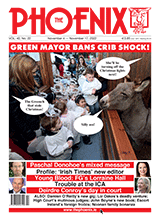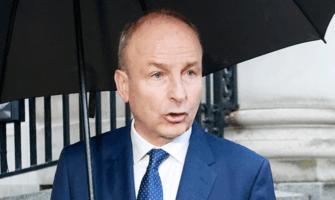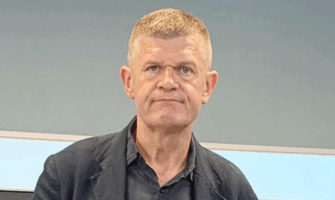
Ruadhán Mac Cormaic
“HONOURED… DELIGHTED” and “beyond proud” to have been appointed editor of the Irish Times was how Ruadhán Mac Cormaic expressed himself on landing what is still the most prestigious job in Irish journalism. How did this relatively anonymous journalist land the gig and what is he expected to do in the face of the problems besetting the newspaper? And problems there are in a post-pandemic financial environment and with a youthful Irish middle class no longer enamoured with the political stance of yesteryear that nevertheless dominates today’s IT.
There was huge relief, jubilation even, among IT journalists when Mac Cormaic was declared the winner, largely because his chief rival, deputy editor Deirdre Veldon, had been expected to land the job. Veldon certainly expected to win and was described as devastated at the outcome. She has since relinquished the position of deputy editor and it is not certain she will remain with the company.
It was not that Veldon was an especially unpopular personality but more that she was seen as management rather than editorial. Her role as deputy editor meant she had to deal with staff problems and other awkward issues while the editor got on with lofty editorial considerations. And while she bore the title of deputy editor, it is a long time since Veldon engaged in simple journalistic matters like writing stories.
Mac Cormaic, on the other hand, is steeped in the culture and tradition of IT specialist writers and broad journalism alike, having been migration correspondent, Paris correspondent, legal affairs correspondent and foreign affairs correspondent. Since 2017 he has been assistant editor in the editor’s office. He has also authored a book, The Supreme Court, and won several journalism awards. No contest really.
EDITORIAL IMBALANCE
However, going back to the second coming of Douglas Gageby in 1974, when he is credited with saving the grand old paper from obliteration, it was a knowledge of the market and business that ultimately determined who was editor.
Gageby’s return was as much a business choice as an editorial one and since then the commercial side of the house has had an inordinate and decisive say in the choice of Gageby’s successors (Conor Brady, Geraldine Kennedy, Kevin O’Sullivan and Paul O’Neill).
Veldon would have assumed, as did others, that she was the choice of the board and the fabled trust that is supposed to watch carefully over the newspaper’s progress and interests – thus her favourite tag.
However, the editorial imbalance between her and Mac Cormaic was such that the choice of editor was really an editorial choice.
Another factor was the shake-up at the top level of the newspaper, with long-time (36 years) former ESB senior executive Paul Mulvaney taking the group managing director post at The Irish Times DAC just over a year ago.
Veldon was a hybrid managing executive cum editorial head rolled into one and it was thought that Mac Cormaic would be more robust than her in his dealings with a non-journalistic executive such as Mulvaney.
Outgoing editor Paul O’Neill recognised the intellectual prowess of his assistant editor, 41-year-old Mac Cormaic, and schooled him in the run up to his own retirement. In fact, O’Neill had wanted to resign a year or so earlier but, with a new MD imminent, he was persuaded to stay on while Mulvaney was bedded in.
During this period, he appears to have laid the ground for his succession by Mac Cormaic. Coming from a man that was battle hardened in the interminable feuding between IT editorial and management in years past, O’Neill’s imprimatur would have been significant.
Given the dominance on the IT board and trust of corporate, Europhile, heavyweights such as Catherine Day, Maeve Carton (see The Phoenix 23/9/22) and board chairman Dan Flinter (who is also chair of venture capital company VCIM and other companies) among others, there would have been quite some debate about rejecting Veldon.
Other opinions would have come into play, however, not least of which concern the newspaper’s circulation and advertising performance.
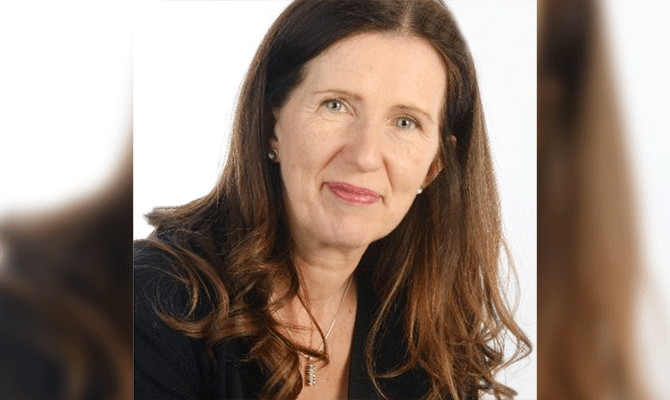
Deirdre Veldon
DIGITAL STRATEGY
The 2020 returns show that the newspaper made an operating profit of €8.3m and was able to return €3m to the Government, this being the amount of wage subsidies it received from the exchequer. However, the IT also received a glut of health advertisements in the same period (not returnable), with the real profitability somewhere south of €4m. Neither wage subsidies nor many state adverts have been coming the print media’s way since then, so we will have to wait for the 2021 annual report (delayed for some months now) to see how things panned out last year.
The newspaper’s digital strategy has, management believes, enabled it to monetise its techniques by selling advertising across multiple platforms and reaching subscribers with supplements and sales pitches in a way that could not be done until recently. Mac Cormaic, by all accounts, is on board with this digital route, providing another plus in the eyes of the board.
Mac Cormaic is also likely to row in with the demand from the Castle in Tara Street to their ‘colleagues’ in the Irish Examiner (previously known as the Cork Examiner) to retreat back to its Munster hinterland sales wise and also in advertising. This demand was made shortly after the IT DAC bought Landmark (which includes the Examiner, the Echo, as well as other regional titles and radio stations) and was stiffly resisted. There will be another tussle over this issue in the near future.
There will also be further jostling back at base when management implements yet another round of cuts among the staff, a project that O’Neill has been well aware of for some time – as has Mac Cormaic. One of O’Neill’s reasons for quitting now, at the relatively young age of 57, was this impending assignment, something he had to implement before under Geraldine Kennedy and again during his own editorship.
It is also another explanation for Mac Cormaic’s appointment in that he is popular among the hacks and emollient in his treatment of them – perfect officer material when it comes to quelling dissent without bloodshed.
Then there is the big brain Ruadhán is alleged to possess and which enabled his resounding success in his specialist roles. There is also his centre-left political bent, which helped him to eclipse other rivals and potential rivals such as news editor Mark Hennessy (seen as centre-right) and three who are deemed as centrist – Arthur Beesley, Simon Carswell and Roddy O’Sullivan. This is the most interesting aspect of what ought to become a new editorial regime if the newspaper is to enter the brave, new, youthful world of 2022.
The Phoenix has commented consistently over the last few years about the rightward drift of the IT from that of a soft, liberal, even social democrat, political hue to that of a war-mongering organ determined to abolish Irish neutrality and vehemently oppose Sinn Féin as well as a united Ireland. Whatever the politics of all this, the editorial problem is that it’s not just hard core, left-wing and working-class people that now support SF but also middle-class young people.
Apparently, Mac Cormaic’s slightly leftist but relatively harmless world view is regarded as a plus by the clever souls that run the newspaper and who have copped on to the gulf that exists between the newspaper’s traditionalist views and that of the more youthful population, not all of whom are unemployed single men in council houses.
Mac Cormaic’s wife, Jean O’Mahoney, works for the Irish Human Rights and Equality Commission but she used to work as an adviser to former Labour Party leader Eamon Gilmore when he was tánaiste up until 2014. This does not automatically make Mac Cormaic a Labour hack but his politics are described by those who know him as essentially Labour.
The trouble with Irish Labour and EU social democrats is that they invariably side with EU states when they come into conflict with ‘extremist’ natives in Africa and elsewhere demanding freedom from western interests. In 2013 the Irish government took the bold step of siding with the French in its former colony, Mali, sending troops there to back up a state that has since endured at least two military coups, with little dissent from our government. As reported at the time, foreign minister Gilmore supported the initiative.
MILITARY SUPPORT
As the US, Britain, France, and even Germany and Nato made belligerent statements about the West needing to get serious about quelling revolt in Mali and the Sahel region of Africa, IT radicals Fintan O’Toole and the then Paris correspondent Mac Cormaic formed a Greek Chorus of support for such military – and colonial – adventures. Mac Cormaic was relatively moderate despite his rhetoric about the “murky nexus of Islamist militancy and transnational crime” in the region. But in a column entitled “This time it really is a war to save civilisation”, O’Toole parodied himself with an argument that said the war in Mali was one to save the country’s musical tradition and art from Islamic iconoclasts (see The Phoenix 8/2/13).
Later that year, then legal affairs editor Mac Cormaic argued strongly for the creation of a judicial council but, surprisingly for such an astute journalist, appeared to swallow the judiciary’s canard that successive governments had obstructed such a council for 20 years. The complete opposite is the truth, as The Phoenix has explained in some detail many times (see edition 27/8/10).
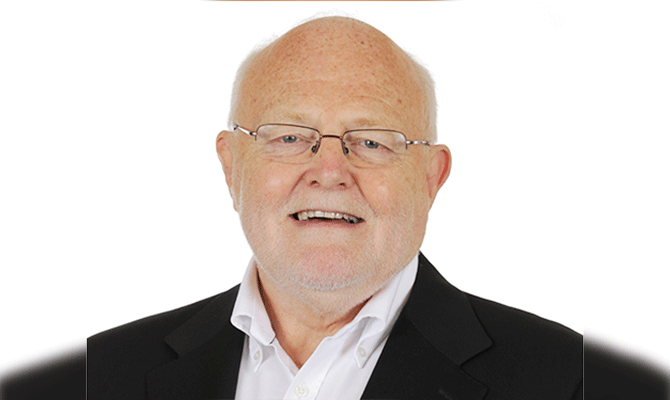
Dan Flinter
ESTABLISHMENT ORTHODOXY
Mac Cormaic went on to write a book, The Supreme Court, which was far less respectful of m’luds than the article mentioned above and which punctured many of the self-serving myths about the class-ridden judiciary. That it was penned and published in 2016, a year after Ruadhán had moved on from legal affairs corr to foreign corr, may help to explain this change of tack.
However, he reverted to establishment orthodoxy and judicial subservience in December 2020 in an article affirming that there was a complete separation of powers between the judiciary and government. That no less than five members of the then 11-member Supreme Court had strong ties with either Fine Gael (four) or Labour (two), was dealt with by Ruadhán in simple if irrefutable arithmetic: “The current Supreme Court has a majority of members who have no party links.”
Mac Cormaic always took his journalism and the politics of journalism seriously and for a time he was chair of the paper’s editorial committee, a slightly portentous group that oversees editorial precepts and such matters. When Kevin O’Sullivan was pushed out in April 2017, Mac Cormaic was chair of the committee, which was supposed to have oversight of appointments and interviews. However, committee members were told of O’Sullivan’s ousting and O’Neill’s appointment by management the day before the event and were also told that a proper advertising and appointments procedure would be disruptive and destabilising – an explanation the committee meekly accepted. A member of this committee was involved in the latest appointments procedure for the editor’s job.
Mac Cormaic returned to another foreign affairs conundrum in 2018, when he bemoaned the lack of any particular message that the Irish government possessed in its bid for a seat on the UN Security Council. He suggested the government canvass for votes in the Middle East. If it occurred to him that Ireland’s absence of a message was due to the virtual abandonment of our previous, non-aligned, neutral identity, Mac Cormaic did not say so. Could it really be that he does not know this?
More recently, Mac Cormaic has written tracts on the Russian aggression and invasion of Ukraine, one of which addressed the question: “Is Putin seeking to recreate the Soviet Union or restore the Russian empire?” No alternative explanation was offered, like the blindingly obvious fact of Nato’s encirclement of Russia in the last number of years. He also wrote a ringing endorsement of German chancellor Olaf Scholz’s demand for unity of the EU, the G7 and Nato against Russia.
The particular establishment agenda at the heart of the Government’s support for Ukraine is the creation of a modernised military machine that would double our defence budget in the next few years. Here, too, Mac Cormaic has written approvingly of the demands for jet air fighters, modern tanks and weaponry of all description, in an editorial headlined: “Our broken defences.”
ANTI-NATIONALISM
Parallel with this radical shift in foreign policy outlook (Gageby would be apoplectic) has been a reversion to a more strident partitionist and anti-SF position than before, a shift that is too comprehensive to detail here but which The Phoenix has chronicled in recent times.
The point is, the ‘centre-left’ editor is constrained politically and editorially by the newspaper’s traditional anti-nationalism, which in recent years has become most unpopular in the Republic. At the same time, the IT’s fetish with the civilising agency that its journalists believe the EU to be has locked its journalists ever more firmly in to the ‘western way of life’ and death. It may be, of course, that Mac Cormaic himself agrees with such an outlook, as many Labour Party members assuredly do.
Then again, it may instead be that recent events – Brexit, the rise of SF, the decade of commemorations – and the consequent change of mood have not entirely escaped some of the more observant souls at the newspaper. The defence of modern republican sentiment by Una Mullally, writing about ‘Ooh ah, up the Ra’, tells you that somebody has their eyes wide open, as does Jennifer O’Connell’s article on the same subject. But the reaction from O’Toole days later was like a loyalist screech of anger at his newspaper carrying such material.
In short, the Irish Times needs to reform its identity but one suspects that any attempt to reinvent itself will lead to serious confusion. Has Mac Cormaic got such an agenda in any case?





